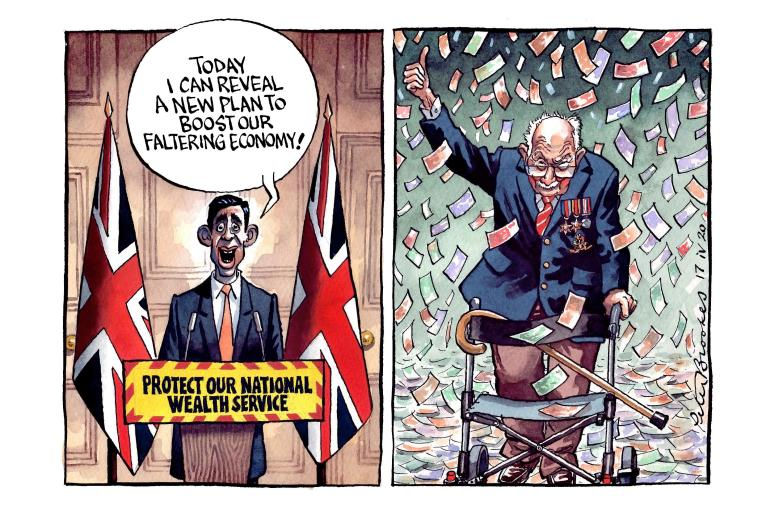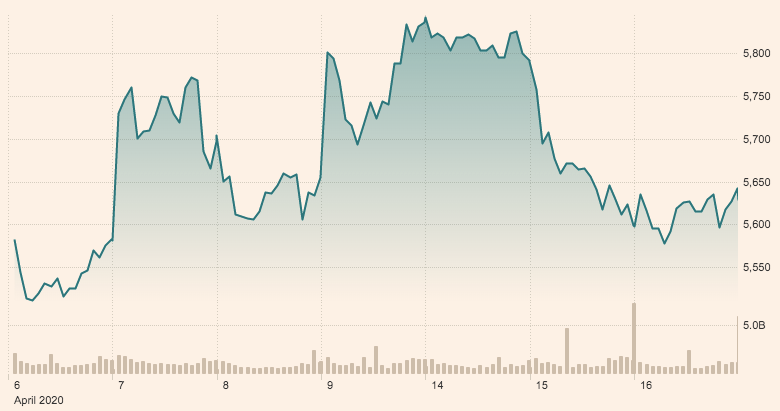- Charlotte Street Partners

- Apr 17, 2020
- 5 min read
Spain's dreams of a grand national pact
Written by Javier Maquieira, Associate
Edited by Adam Shaw, Associate Partner
Good morning,
Cross-party unity is a rare and short-lived event in Spanish politics, and it has proven to be so even during the coronavirus outbreak.
While political parties in other countries have to some extent managed to set aside their differences and face the Covid-19 pandemic without much friction, some opposition groups in Spain are committed to making things more difficult for the prime minister, Pedro Sánchez.
The country is second in number of confirmed coronavirus cases in the world, according to Johns Hopkins University data. On Wednesday, it reported the biggest rise in six days, with more than 5,000 new infections recorded in the previous 24 hours. While the daily death toll has decreased and the situation in many hospitals and intensive care units seems to have improved, the Spanish government will seek to extend the state of emergency beyond 25 April.
To tackle the coronavirus crisis, the Sánchez administration is currently working at three different speeds: a day-to-day approach to try to contain the health emergency and mitigate the impact on the economy; a medium-term assessment of confinement deescalation measures; and a long-term plan for the economic and social reconstruction of the country.
For the long-term endeavour, the prime minister began a round of virtual meetings with the leaders of opposition parties yesterday in an attempt to reach what has been dubbed the “new Moncloa Pacts”, in reference to the 1977 cross-party deal that shored up Spain’s democratic transition.
However, the leaders of the conservative Popular Party (PP) and far-right Vox have so far refused to meet with Sánchez. Pablo Casado, the PP’s leader, has blamed the prime minister for turning Spain into “a mortuary”, calling on him to be more humble and wear a black tie as a sign of mourning for the victims of the coronavirus.
But the Sánchez government, which includes his coalition partner and leader of the far-left Podemos party, Pablo Iglesias, has avoided being dragged into Casado’s blame game and instead called on him to pursue “another way of doing politics” that restores cross-party consensus.
For what it’s worth, a survey by Spain’s Centre for Sociological Research (CIS) found that 87% of Spaniards believe that political organisations should support the Spanish government throughout the Covid-19 crisis and leave criticism for a later stage.
The coalition government, which was only established in December, is certainly facing the most complex period in Spain’s recent democratic history. Without the support of all opposition parties and autonomous regions, political confrontation will only get worse at the wrong time. Scrutiny is important. But it can be done in a constructive manner.
News
Dominic Raab confirmed that confinement measures will remain in place in the UK for “at least” another three weeks. The foreign secretary, who is deputising for the prime minister as he recovers from the coronavirus, said during the daily government briefing that a review had concluded easing the restrictions would put public health and the economy at risk.
G7 leaders backed the World Health Organisation at a virtual summit yesterday as health officials condemned Donald Trump’s decision to suspend the United States’ funding of the United Nations agency. The US president, who criticised the international organisation for what he deems a lack of transparency and mismanagement of the coronavirus, is widely seen to take interest in turning the outbreak into a trial of strength and influence with China.
In a retreat from earlier claims of “absolute authority” to restart the US economy, President Trump has given governors new guidelines to help states ease their social distancing restrictions, leaving the decision on when and how to reopen the economy to them. The plan outlines three phases in which states can gradually ease their lockdowns as the Trump administration seeks to revive an economy deeply affected by the coronavirus pandemic.
Business and economy
The UK government has confirmed an order of 15,000 units of the first new medical ventilator to treat people with severe symptoms of Covid-19, following approval by the Medicines and Healthcare products Regulatory Agency. Hundreds of the Penlon Prima ESO2, developed by a consortium of major firms, including Siemens, Airbus, Ford and a number of Formula 1 teams, are expected to be built over the next week.
The US recorded 5.2 million unemployment claims last week, leaving the total number of people seeking work above 20 million over the past month – the worst jobless figures on record for the world’s biggest economy. It comes as President Trump reiterated his view that the number of new Covid-19 infections has passed its peak and claimed the country would be the “comeback kid” once economic activity is restarted.
The Chinese economy shrank 6.8% in the first quarter of 2020 compared to a year earlier as a result of the coronavirus pandemic – its worst three-month period in decades. Meanwhile in Wuhan, where the virus is thought to have first emerged, a revision of the death toll by Chinese authorities increased the number of Covid-19 fatalities by 50% to 3,869 from 2,579.
Columns of note
InThe Times, Iain Martin writes that an upside to the current crisis is that the world is being offered a taste of what it is to breathe properly as a result of lockdown measures. He emphasises the effects of a respiratory disease such as Covid-19 are likely to be exacerbated by air pollution, which should make us think about the opportunity to ensure we have permanently cleaner air when the economic restart happens. Martin suggests that the UK government should seek to rebuild the industry by expanding the network of electric cars and by providing more incentives for electric public transport to accelerate towards greener British cities. (£)
Writing inCity AM, Edward Boyd argues that the case is stronger than ever for a more compassionate type of capitalism that aims to invest in people and the planet and not just seek profit. In particular, he insists there is a great opportunity for businesses to get this right by providing employment, paying taxes that fund public services, and creating products and services that the public need and enjoy.

Source: The New Yorker
Markets
What happened yesterday?
London stocks finished higher on Thursday following another week of hugely increased US unemployment figures. The FTSE 100 ended the session up 0.55% at 5,628.43, while sterling was weaker both against the dollar by 0.83% at $1.2414 and versus the euro by 0.11% at €1.1461. On Wall Street, the S&P 500 closed 0.6% higher despite US jobless claims.
The following firms updated the market yesterday:
Barratt Developments announced a 20% reduction in pay for its board and senior managers and said it was in the process of furloughing around 85% of its employees. The housebuilder ended the session 8.8% higher.
Petrofac saw a 14.67% drop in its share price after saying the Abu Dhabi National Oil Company had terminated two recently awarded contracts for the Dalma Gas Development Project worth around $1.65bn.
EasyJet unveiled plans to keep middle seats on its Airbus narrow jets empty to maintain social distancing onboard once the budget airline starts flying again, reversing earlier gains as its shares closed down 2.45%. It also announced its intention to take no new aircraft deliveries in 2021.
What's happening today?
Trading announcements Cranswick
Record
AGMs
Herald Inv.
Ros Agro S
Int. economic announcements
(10:00) Consumer Price Index (EU)

Did you know?
Old books have a particular smell due to lignin, an organic polymer, being present in the paper. Lignin is closely related to vanillin, leading them to have a faint vanilla scent..
Parliamentary highlights
House of Commons
No business scheduled
House of Lords
No business scheduled
Scottish Parliament
No business scheduled

Comments